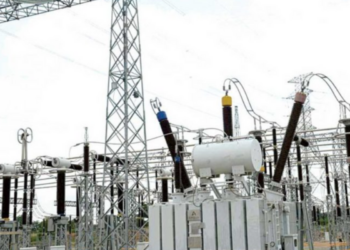The year 2023 witnessed the introduction of new pieces of legislation into Nigeria’s constitution with the assenting of pivotal laws aimed to guide, protect, and provide for individuals and businesses across the country and abroad by outgoing President Muhammadu Buhari and his successor President Bola Tinubu.
- In March, President Buhari approved a set of 16 constitutional amendment bills, with a notable focus on key changes. Foremost among these was the devolution of powers, empowering state governments to generate and distribute electricity within areas covered by the National grid.
- Furthermore, the President signed into law an amendment mandating that both the President and state Governors submit their nominees for ministers or commissioners within 60 days of assuming office.
- President Buhari also gave his assent to a bill relocating the Railway from the Exclusive list to the concurrent list. Additionally, he approved the renaming of the Nigeria Prison Service to the Nigeria Correctional Service under the Fifth Alteration Bill No. 31, specifically addressing the devolution of powers related to correctional services.
Other bills signed into law in the final days of President Buhari’s tenure are;
- The National Social Investment Programme Agency Act- this bill officially legitimizes the National Social Investment Programme initiated by the outgoing administration administration. This program, designed to support and empower the underprivileged in Nigeria, undergoes a name change to become the National Social Investment Programme Agency.
- The National Senior Secondary Education Commission- This legislation not only forms a Commission but also sets forth minimum standards for senior secondary education in Nigeria, outlining the management of the National Senior Secondary Education Fund.
- The Chartered Institute of Power Engineers of Nigeria Act- This law lays the foundation for the Chartered Institute of Power Engineers of Nigeria. This institute is tasked with the responsibility of defining the standards of knowledge and skill required for individuals aspiring to attain the status of chartered power engineers.
Major Legislation signed into law by President Tinubu in 2023
On assumption into office, President Tinubu has signed a few important Acts into law mainly to enshrine the rule of law in business and our personal lives.
The major bills signed by President Tinubu so far are;
- Electricity Act 2023- President Bola Ahmed Tinubu gave his assent to the Electricity Act 2023, a legislative piece approved by the National Assembly (NASS) in July 2023. This Act is set to supplant the Electricity and Power Sector Reform Act of 2005, presenting a comprehensive framework to navigate the post-privatization phase of the Nigerian Electricity Supply Industry (NESI) while fostering increased private sector investments in the sector.
The Electricity Act aims to break the monopoly in Nigeria’s electricity generation, transmission, and distribution at the national level, thereby granting states, companies, and individuals the authority to independently generate, transmit, and distribute electricity.
Within the provisions of this Act, state governments have the prerogative to issue licenses to private investors, enabling them to operate mini-grids and power plants exclusively within the state boundaries. It’s important to note that the Act explicitly excludes interstate and transnational electricity distribution.
- Access to Higher Education Act (Student Loan)- In June, President Tinubu signed into law the Access to Higher Education Act, a legislative measure designed to improve accessibility to higher education for Nigerian students. This legislation introduces interest-free loans aimed at alleviating financial barriers that impede educational pursuits.
Furthermore, the Act ensures that all students pursuing higher education in public institutions have an equal entitlement to access these loans, with no discrimination based on gender, religion, tribe, position, or disability.
- Data Protection Act– The Data Protection Act became the third legislation signed into law by President Tinubu following his inauguration.
At its core, the Bill is centered around safeguarding individuals’ data. It imposes legal obligations on organizations and individuals to uphold and protect individuals’ privacy by securing their data.
The law replaces the Nigeria Data Protection Bureau (NDPB) established by President Buhari in February 2022 and establishes the Nigeria Data Protection Commission.
- Judicial Officers Law– The legislation, officially named ‘Constitution of the Federal Republic of Nigeria, 1999 (fifth alteration) (No.37), 2023,’ received presidential approval on June 8, marking President Tinubu’s inaugural signing of legislation.
This law establishes a standardized retirement age for judges at 70 years and ensures consistent pension rights for judicial officers across various superior courts.
























